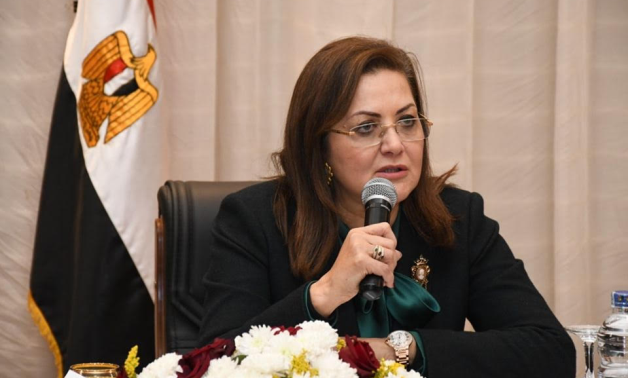
Minister of Planning and Economic Development Hala El-Said- press photo
CAIRO - 27 June 2022: Thanks to the government's economic reform program, Egypt's economy has become more resilient to internal as well as external shocks, affirmed Planning and Economic Development Minister Hala El Said.
Egypt has made rapid efforts over the past few years in responding to global shocks and crises to mitigate, adapt and recover from the short, medium, and long-term effects of the Covid-19 pandemic, added the minister.
This came during a speech delivered by Deputy Minister of Planning and Economic Development Ahmed Kamali on behalf of the minister during the opening session of the annual conference of the Faculty of Economics and Political Sciences at Cairo University.
Held under the rubric "The new Egyptian republic and sustainable development: opportunities and challenges", the conference was attended by a host of high-level officials along with Cairo University President Mohamed Othman El Khosht.
During the conference, Kamali reviewed Egypt's efforts to attain overall sustainable development over the past few years, in light of the ongoing challenges.
He also said that upward growth rates have been achieved in the past years, as the growth rate reached 5.6% in the first half of the year 2019/2020 before the global outbreak of the Covid-19.
He further said it was earlier expected that Egypt would achieve a growth rate of 6.4 percent in 2021/22 as it was able to quickly recover from the coronavirus pandemic.
But the Russia-Ukraine crisis caused a negative impact that led the growth rate to be downgraded, he said, noting that the economic growth rate is expected to surpass 6% during this year, which is higher than the 3.3 percent recorded in fiscal year (FY) 2020/21 and of the growth rates achieved by other countries, currently ranging between 3-4 percent, except for China and India.
Comments
Leave a Comment